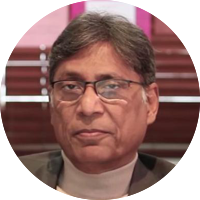Heer Ranjha
The story of Heer and Ranjha is about six centuries old now. Ranjha was the son of a landlord and lived in Takht Hazara by the river Chenab. Heer was the daughter of another prosperous person from Jhang. Both were young and beautiful but they were destined to suffer immeasurably. Ranjha did not have much of the worldly skills but he was a good shepherd and a fine flute player. After the death of his father, he was considered a burden on the family. His brothers ill-treated him and denied him share in ancestral property of land.
On a consequential night, Ranjha had a dream where he came across an exceptionally beautiful girl. Dogged by her thoughts, he set out from his home and moved towards Multan to seek guidance from the famous five mendicants (panch pir) and find out the whereabouts of his dream girl from them. After much effort and painful journey, he succeeded in meeting the mendicants and getting her trace. Before and even after reaching her, he faced innumerable hurdles one after another which would make for a long and painful story here. However, his owes included stiff resistance from Heer’s parents, punishment to her by her parents, and her forced marriage to an affluent person. Ranjha had to leave and become a wandering lover looking for a resolution. He became a yogi and reached the home of that affluent person to whom Heer had been married. After facing many more hurdles, he succeeded in eloping with Ranjha. When the matter was brought to a qazi, the qazi favoured them. There are two versions of the story after this. According to one version, Heer and Ranjha left for an unknown destination but according to another, they suffered more and more and could not meet in their lives but were united only in death. They lie buried in Jhang, Heer’s hometown. Their graves are still visited by lovers and admirers of their love.
Reference: This story was first narrated in verse by one Damodar, a native of Jhung, and is broadly based on eyewitness accounts. Since then it has been narrated variously and in various languages, both in verse and prose. One of the most notable narratives came from Waris Shah in 1766, apart from several others in Sindhi, Haryanavi, Hindi, Urdu, Persian, and English. In Persian alone, there are as many as twenty versions of this story and in Urdu not less than fifteen. Juda hai Heer se Ranjha kayi zamaanon se/Naye sire se kahaani ko phir likha jaai (Nida Fazleli), Ban na paaya Heer, Ranjha ab bhi Ranjha hai bahut/Dekh Waris Shah teri Heer aadhi reh gayi (Farhay Ehsas). See: https://www.rekhta.org/ebooks/heer-waris-shah-akram-shaikh-ebooks, https://www.rekhta.org/ebooks/qissa-heer-ranjha-abdul-ghani-shauq-ebooks
The story of Heer and Ranjha is about six centuries old now. Ranjha was the son of a landlord and lived in Takht Hazara by the river Chenab. Heer was the daughter of another prosperous person from Jhang. Both were young and beautiful but they were destined to suffer immeasurably. Ranjha did not have much of the worldly skills but he was a good shepherd and a fine flute player. After the death of his father, he was considered a burden on the family. His brothers ill-treated him and denied him share in ancestral property of land.
On a consequential night, Ranjha had a dream where he came across an exceptionally beautiful girl. Dogged by her thoughts, he set out from his home and moved towards Multan to seek guidance from the famous five mendicants (panch pir) and find out the whereabouts of his dream girl from them. After much effort and painful journey, he succeeded in meeting the mendicants and getting her trace. Before and even after reaching her, he faced innumerable hurdles one after another which would make for a long and painful story here. However, his owes included stiff resistance from Heer’s parents, punishment to her by her parents, and her forced marriage to an affluent person. Ranjha had to leave and become a wandering lover looking for a resolution. He became a yogi and reached the home of that affluent person to whom Heer had been married. After facing many more hurdles, he succeeded in eloping with Ranjha. When the matter was brought to a qazi, the qazi favoured them. There are two versions of the story after this. According to one version, Heer and Ranjha left for an unknown destination but according to another, they suffered more and more and could not meet in their lives but were united only in death. They lie buried in Jhang, Heer’s hometown. Their graves are still visited by lovers and admirers of their love.
Reference: This story was first narrated in verse by one Damodar, a native of Jhung, and is broadly based on eyewitness accounts. Since then it has been narrated variously and in various languages, both in verse and prose. One of the most notable narratives came from Waris Shah in 1766, apart from several others in Sindhi, Haryanavi, Hindi, Urdu, Persian, and English. In Persian alone, there are as many as twenty versions of this story and in Urdu not less than fifteen. Juda hai Heer se Ranjha kayi zamaanon se/Naye sire se kahaani ko phir likha jaai (Nida Fazleli), Ban na paaya Heer, Ranjha ab bhi Ranjha hai bahut/Dekh Waris Shah teri Heer aadhi reh gayi (Farhay Ehsas). See: https://www.rekhta.org/ebooks/heer-waris-shah-akram-shaikh-ebooks, https://www.rekhta.org/ebooks/qissa-heer-ranjha-abdul-ghani-shauq-ebooks
Additional information available
Click on the INTERESTING button to view additional information associated with this sher.
About this sher
rare Unpublished content
This ghazal contains ashaar not published in the public domain. These are marked by a red line on the left.

